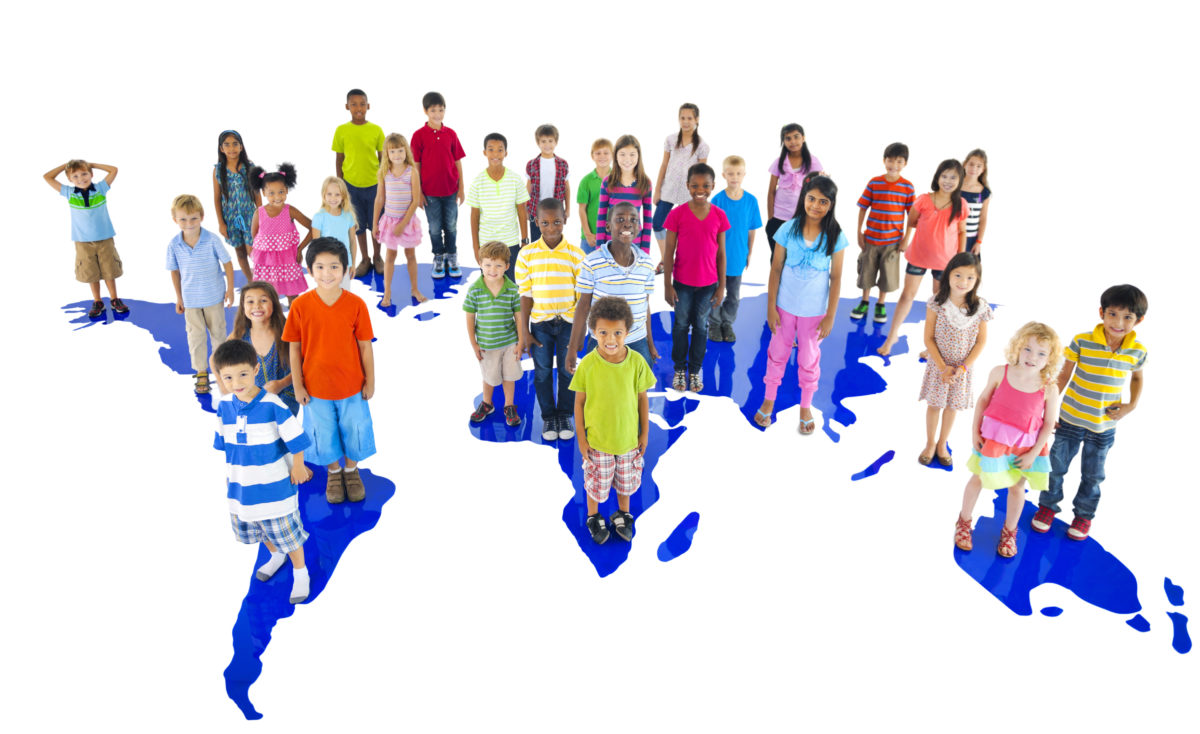In today’s interconnected world, exposure to different cultures and languages has become more valuable than ever. Introducing young children to multicultural and bilingual learning not only enriches their educational experiences but also builds essential skills that will serve them throughout their lives. This article explores the benefits of multicultural and bilingual education in early childhood and how it promotes cognitive, social, and emotional growth.
Fostering Open-Mindedness and Empathy
Multicultural learning encourages children to appreciate diversity by introducing them to new perspectives, customs, and ways of thinking. Through positive exposure to different cultures, children develop open-mindedness and empathy, which can greatly enhance their social interactions and relationships.
- Research Insight: A study from the National Association for the Education of Young Children (NAEYC) found that children exposed to diverse cultural settings were better able to understand and empathize with others. These children exhibited more patience and adaptability when working with peers from different backgrounds.
- Daycare’s Role: By celebrating cultural holidays, sharing stories, and incorporating multicultural activities, daycares provide young children with opportunities to engage with diverse traditions and values in a fun, hands-on way.
Cognitive Benefits of Bilingual Learning
Bilingual education during early childhood has profound cognitive benefits. Young children’s brains are especially receptive to language, making this an ideal period to introduce a second language. Bilingual children often show advantages in cognitive skills, such as memory, problem-solving, and multitasking.
- Scientific Insight: Studies from the Journal of Experimental Child Psychology have shown that bilingual children outperform monolingual peers in tasks requiring cognitive flexibility and attention control. This is because learning multiple languages exercises the brain, enhancing the ability to switch between tasks and improve focus.
- How Daycare Programs Help: Bilingual daycares immerse children in a second language through storytelling, songs, and interactive play. This exposure helps children develop language skills naturally, which will support language proficiency and cognitive abilities as they grow.
Building Social Skills and Cultural Awareness
Bilingual and multicultural education also promotes social skills and cultural awareness. Children who understand and communicate in multiple languages are better equipped to interact with people from various backgrounds. This skill set is increasingly valuable in a globalized world.
- Supporting Research: According to the American Council on the Teaching of Foreign Languages (ACTFL), early language learners often develop better social awareness and adaptability, as they become more aware of cultural nuances. Additionally, children who learn about various cultures show higher levels of curiosity and tolerance.
- Practical Application in Daycare: Through age-appropriate activities like games, crafts, and language lessons, daycare centers can introduce children to new languages and cultural traditions. This approach not only enhances language skills but also helps children feel comfortable and confident in diverse social settings.
Enhancing Academic Readiness and Global Perspective
Children exposed to multicultural and bilingual learning tend to perform better academically and develop a broader worldview. Bilingualism supports literacy and language development in both languages, while multicultural experiences teach children to think critically and value diversity.
- Key Findings: The Harvard Graduate School of Education reported that children who engage in bilingual education show greater academic readiness, particularly in literacy and math. Similarly, children who participate in multicultural education are often more creative thinkers, as they are encouraged to view problems from multiple perspectives.
- Daycare’s Contribution: A daycare program that integrates multicultural and bilingual learning prepares children for academic success by strengthening literacy, math, and critical thinking skills. Furthermore, these children develop a global perspective that will be invaluable as they navigate future social and educational environments.
Long-Term Advantages of Early Multicultural and Bilingual Education
The benefits of a multicultural and bilingual foundation extend beyond childhood. Research suggests that these early experiences make children more adaptable and resilient, traits that are highly valuable in both personal and professional spheres.
- Economic Insight: According to a report by the World Economic Forum, bilingual and culturally aware individuals have greater employability in a global job market. Being able to communicate in multiple languages and appreciate diverse perspectives is seen as an asset by employers worldwide.
- Parental Perspective: Parents who choose a daycare that offers multicultural and bilingual education are investing in their child’s future. They provide their children with the opportunity to develop cultural awareness and language skills that will serve them throughout their lives.
Multicultural and bilingual learning in early childhood offers children a head start in today’s diverse world. At Daycare ABC, we are committed to creating an environment where children can explore new cultures and languages in a nurturing, engaging setting. By integrating multicultural activities and bilingual lessons, we aim to foster open-mindedness, cognitive development, and social skills that will empower our children for years to come. Choosing a daycare that values diversity and bilingualism is a powerful step toward a bright, inclusive future for your child.
Written by Daycare ABC Team


